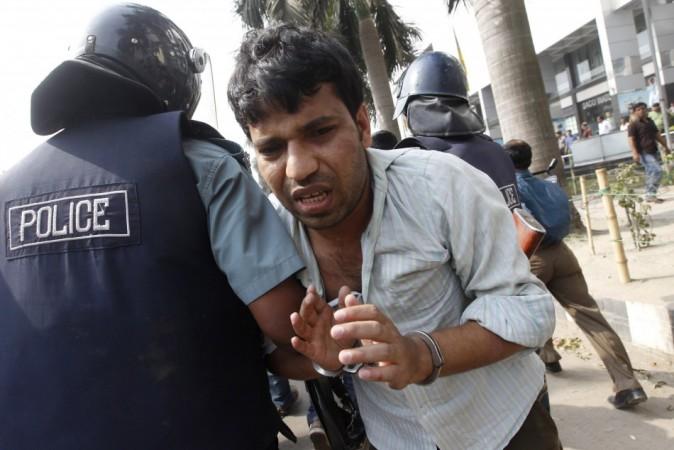
A death sentence handed to a Bangladeshi Islamist party leader, Delwar Hossain Sayedee, for crimes against humanity during the country's independence war in 1971, has triggered riots that killed dozens of people.
Bangladesh police on Friday said that at least 42 people were in the riots including four policemen, Associated Press reported.
The 73-year-old vice-president of Jamaat-e-Islami party was handed capital punishment on Thursday after he was found guilty for mass killings, rape, looting and forcing minority Hindus to convert to Islam during the independence war against Pakistan, lawyers and tribunal officials said, according to Reuters.
The tribunal verdict sent activists from Sayedee's party into the streets where they clashed with police following which violence erupted in several areas across the country.
On Friday, the government positioned thousands of paramilitary border forces in more than a dozen affected areas.
"Our troops were deployed in 15 troubled districts in aide of civil administration... BGB (Border Guard Bangladesh) has been kept alert so it could move immediately wherever they are required," BGB chief major General Aziz Ahmed told PTI.
Law enforcement agencies have been on high alert as Sayedee's supporters might plan more protests and attack mosques during Friday prayers.
Jamaat, the largest Islamic party in Bangladesh, also called for a nationwide strike on Sunday and Monday to condemn the tribunal's verdict.
Protestors said that the judgment was politically influenced. They also burnt several houses, a Hindu temple, attacked police camp, uprooted railway tracks and government offices in the country during the violence.
Thousands of people including students, who were demanding the execution for war criminals, supported the tribunal's verdict and burst into cheers.
Witnesses said that Saydee remained calm when the judges announced his sentence. He denied all 19 charges levelled against him and told the court, "I didn't commit any crime and the judges are not giving the verdict from the core of their heart."
After the verdict state prosecutor Haider Ali said that he was happy with the judgment, while defense attorney Abdur Razzak said it was politically motivated.

















